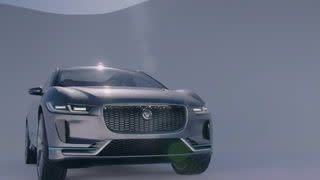The electric car revolution may hit the world 'harder and faster' than predicted
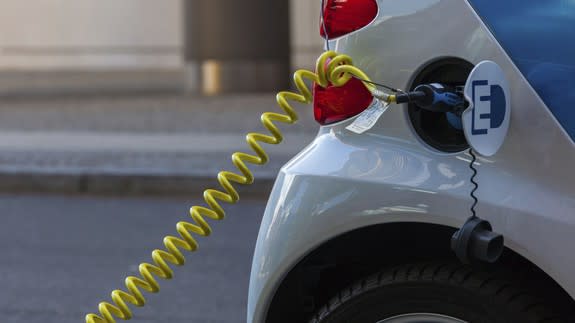
Electric vehicles are still rare sightings on most roads today. But in a couple of decades, more than a third of all passenger cars will run on batteries — not on gasoline or diesel, analysts say.
Around 530 million electric vehicles could zip quietly along the world's streets and highways by 2040, Bloomberg New Energy Finance (BNEF) said on Thursday in a new report. That's up from roughly 2 million electric cars today.
SEE ALSO: Hummer factory gets second life making electric cars
When it comes to new car sales, battery-powered vehicles will make up 54 percent of the market, compared to just a tiny fraction now, according to BNEF. The forecast is much more aggressive than 2016's outlook, which saw electric cars accounting for about one-third of new sales by 2040.
"The EV revolution is going to hit the car market even harder and faster than BNEF predicted a year ago," analysts said Thursday in a press release.
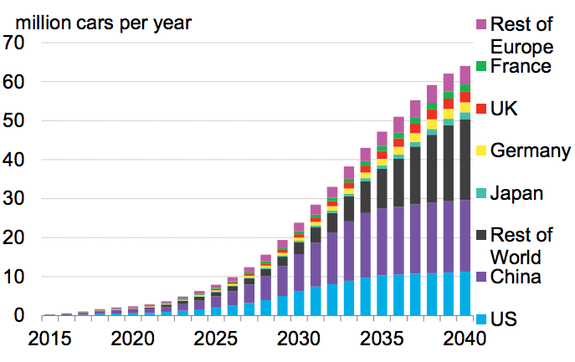
Image: BNEF Electric Vehicle Outlook 2017
Such a dramatic change in the global auto market would have huge benefits for the climate — especially as wind turbines and solar panels provide a rising share of the electricity needed to recharge batteries. If a third of electric cars are electric, that'd displace around 8 million barrels of transportation fuel per day, BNEF said.
Analysts said their stronger forecast was due to two key reasons.
First, automakers are doubling down on commitments to produce electric passenger cars. Need proof? Look no further than this week's headlines.
Volvo on Wednesday said that starting in 2019, all the models it introduces will be either hybrids or powered solely by batteries, making it the first mainstream automaker to "sound the death knell of the internal combustion engine," the New York Times reported.
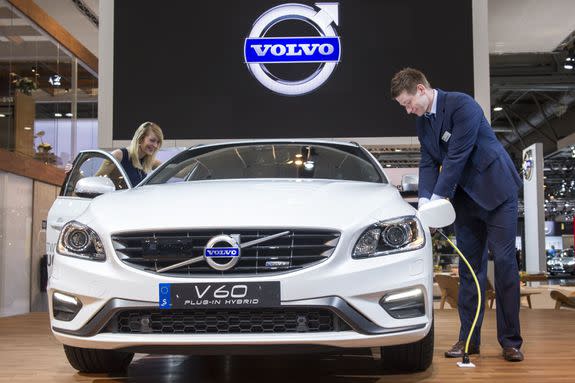
Image: Jens Schlueter/Getty Images
A day later, France's government announced an ambitious plan to stop all domestic sales of gas- and diesel-powered cars by 2040. Tesla, the electric automaker led by Elon Musk, announced its mass-market, all-electric Model 3 would start rolling off production lines this week.
And second, lithium-ion battery costs are falling much faster than expected thanks to improving technology and increased supply. That means electric cars will not only be cleaner than petroleum-powered vehicles but also cheaper in most countries — as early as 2025.
"We see a momentous inflection point for the global auto industry in the second half of the 2020s," Colin McKerracher, BNEF's lead advanced transport analyst, said in a statement.
The BNEF outlook assumes that current government policies to reduce tailpipe greenhouse gas emissions and promote alternative transportation remain in place, but it doesn't assume that any new policies are introduced. That means the long-term forecast reflects how the passenger vehicle market alone might transform as prices plunge, automakers boost supplies, and consumers grow more comfortable with battery-powered options.
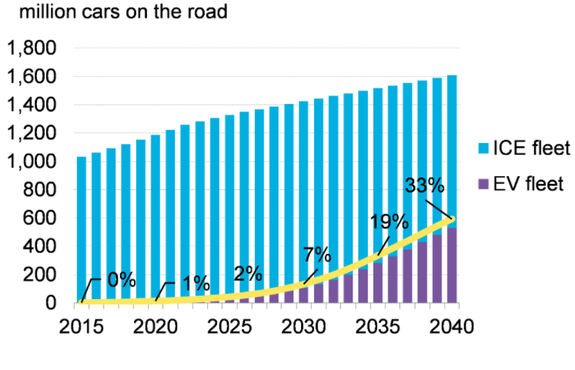
Image: bnef Electric vehicle outlook 2017
Still, the electric vehicle revolution is far from guaranteed.
Many highway stops, city streets, and garages still aren't adequately equipped with electric car-charging equipment. Existing technologies can also take hours to fully charge a battery, compared to just a few minutes with a gasoline tank.
Salim Morsy, lead author of the new BNEF report, said the fact that many people still aren't able to charge at home is a big reason why electric cars aren't a bigger share of the global car fleet in the 2040 forecast.
"There is a credible path forward for strong EV growth, but much more investment in charging infrastructure is needed globally," Morsy said.
WATCH: Jaguar could become Tesla's closest competitor — with this fancy, all-electric SUV
